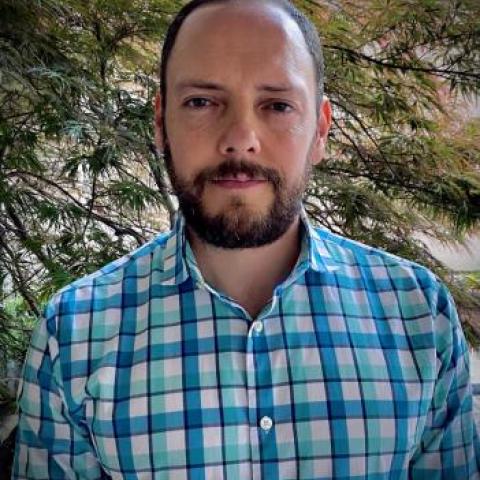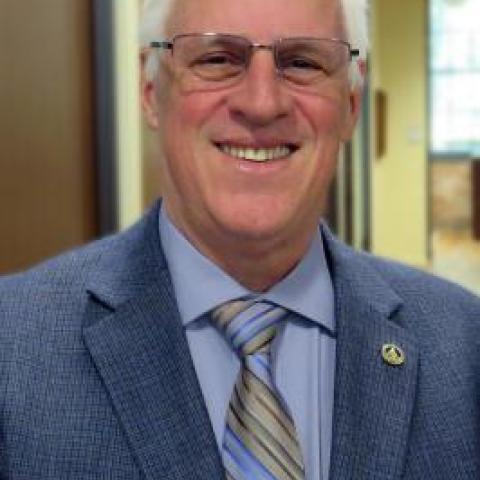Robin Wade



Sherri joined the Business Analytics Center at Scheller College of Business in August 2017 as the Corporate Engagement Manager. She is responsible for identifying, developing and maintaining corporate partnerships that drive collaboration between the Business Analytics Center and the analytics industry.
Before joining the Business Analytics Center, Sherri worked as a Corporate Relations Manager for the Georgia Tech Master of Science in Analytics Program. Prior to joining Georgia Tech, she built a 25+ year accomplished track record in business development, corporate relations, program management and fund raising. Her extensive experience spans multiple industry sectors in Technology, Consumer Products, Education and Nonprofit.

Richard (Rich) Vuduc is an Associate Professor at the Georgia Institute of Technology (“Georgia Tech”), in the School of Computational Science and Engineering, a department devoted to the study of computer-based modeling and simulation of natural and engineered systems. His research lab, The HPC Garage (@hpcgarage), is interested in high-performance computing, with an emphasis on algorithms, performance analysis, and performance engineering. He is a recipient of a DARPA Computer Science Study Groupgrant; an NSF CAREER award; a collaborative Gordon Bell Prize in 2010; Lockheed-Martin Aeronautics Company Dean’s Award for Teaching Excellence (2013); and Best Paper Awards at the SIAM Conference on Data Mining (SDM, 2012) and the IEEE Parallel and Distributed Processing Symposium (IPDPS, 2015), among others. He has also served as his department’s Associate Chair and Director of its graduate programs. External to Georgia Tech, he currently serves as Chair of the SIAM Activity Group on Supercomputing (2018-2020); co-chaired the Technical Papers Program of the “Supercomputing” (SC) Conference in 2016; and serves as an associate editor of both the International Journal of High-Performance Computing Applications and IEEE Transactions on Parallel and Distributed Systems. He received his Ph.D. in Computer Science from the University of California, Berkeley, and was a postdoctoral scholar in the Center for Advanced Scientific Computing the Lawrence Livermore National Laboratory.





Craig Tovey is a Professor in the H. Milton Stewart School of Industrial and Systems Engineering at Georgia Tech. He also co-directs CBID, the Georgia Tech Center for Biologically Inspired Design.
Dr. Tovey's principal research and teaching activities are in operations research and its interdisciplinary applications to social and natural systems, with emphasis on sustainability, the environment, and energy. His current research concerns inverse optimization for electric grid management, classical and biomimetic algorithms for robots and webhosting, the behavior of animal groups, sustainability measurement, and political polarization.
Dr. Tovey received a Presidential Young Investigator Award in 1985 and the 1989 Jacob Wolfowitz Prize for research in heuristics. He was granted a Senior Research Associateship from the National Research Council in 1990, was named an Institute Fellow at Georgia Tech in 1994, and received the Class of 1934 Outstanding Interdisciplinary Activity Award in 2011. In 2016, Dr. Tovey was recognized by the ACM Special Interest Group on Electronic Commerce with the Test of Time Award for his work as co-author of the paper “How Hard Is It to Control an Election?” He was a 2016 Golden Goose Award recipient for his role on an interdisciplinary team that studied honey bee foraging behavior which led to the development of the Honey Bee Algorithm to allocate shared webservers to internet traffic.
Dr. Tovey received an A.B. in applied mathematics from Harvard College in 1977 and both an M.S. in computer science and a Ph.D. in operations research from Stanford University in 1981.

Dr. John Lawrence Tone is professor of history in the School of History and Sociology. In the past he has served as interim dean of the Ivan Allen College of Liberal Arts, chair of the School of Economics and of the School of History and Sociology, and associate dean of undergraduate studies in the Ivan Allen College. He specializes in Spanish and Cuban military history and the history of disease and medicine. He has written several articles and books, including The Fatal Knot: The Guerrilla War in Navarre and the Defeat of Napoleon in Spain (1995), La guerrilla española (1999), and War and Genocide in Cuba (2006). The Fatal Knot was a selection of the History Book Club and received the Literary Prize of the International Napoleonic Society in 1999. He was inducted as a Fellow of the International Napoleonic Society in that same year. War and Genocide in Cuba received the Society for Military History Prize for the Best Book on a Non-US Subject in 2008. His current research is on the history of yellow fever. He has received grants from the Fulbright Foundation, the National Endowment for the Humanities, and the American Philosophical Society. He teaches courses on European History, The French Revolution and Napoleon, Intellectual History, Modern Spain, Modern Cuba, and The History of Disease and Medicine.

Mikkel A. Thomas has worked for the Institute for Matter and Systems since 2008. He earned a Bachelor of Science in Electrical Engineering in 1997, a Master of Science in Electrical Engineering in 1999 and a Ph.D. in Electrical Engineering with a specialization in Optoelectronics in 2008, all from the Georgia institute of Technology. Prior to his employment at Georgia Tech, Thomas worked at OptiComp Corporation located in Zephyr Cove, Nevada. His research at the company revolved around the development of VCSEL based, integrated optical communication systems for use in satellites and other aerospace applications. Since arriving at Georgia Tech, in the IMS, Thomas has provided cleanroom processing support to the academic faculty and their graduate students. He also provided processing support and fabrication services for entities not directly affiliated with the institute. Additionally, he was the lab instructor for ChBE 4050. In 2022, Thomas was named the Associate Director for Education and Outreach in IMS. In this role, Thomas is responsible for all the outreach efforts of the IRI covering K-Grey. He also organizes all the education coordinators in the National Nanotechnology Coordinated Infrastructure (NNCI) as part of his role in the NNCI coordinating office located at Georgia Tech.